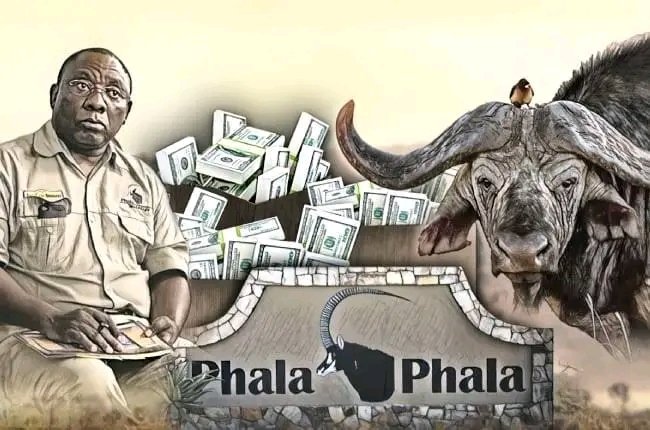The ongoing saga surrounding President Cyril Ramaphosa and the Phala Phala scandal is set to take a dramatic turn as the Economic Freedom Fighters (EFF) brings its legal challenge to the Constitutional Court on Tuesday. The case focuses on Parliament’s controversial decision to forgo an impeachment investigation into the president’s alleged criminal conduct related to the 2020 Phala Phala break-in at his game farm.
At the heart of the matter is the EFF’s contention that Ramaphosa must be held accountable for his role in the scandal, which has sparked multiple investigations into whether he violated South Africa’s laws. The party is challenging not only the president but also the National Assembly and the African National Congress (ANC), whose rejection of the African Transformation Movement’s (ATM) impeachment motion in December 2022 has become a focal point of this ongoing dispute.

The Phala Phala incident, where masked men allegedly stole large sums of money from Ramaphosa’s farm, has been surrounded by controversy from the outset. Despite multiple investigations by the Reserve Bank, the Public Protector, and other authorities, the matter has yet to result in any criminal charges against the president. However, a report by the independent panel led by retired Chief Justice Sandile Ngcobo raised concerns that Ramaphosa might have breached the Constitution and should be held accountable for his handling of the incident.
This report was dismissed by Parliament, and Ramaphosa has since vigorously contested its findings in court, arguing that the panel misinterpreted the facts. In 2023, the Constitutional Court ruled that the panel had overstepped its bounds by directly approaching the court, rather than allowing Parliament to handle the matter first. Now, with the EFF’s legal action, the matter is back in the highest court, potentially setting a landmark precedent for presidential accountability and impeachment procedures.
The EFF’s legal challenge is not just about the Phala Phala scandal; it is also about ensuring that South Africa’s impeachment process is transparent, robust, and legally sound. The party argues that Parliament can only reject the findings of an independent panel if there are clearly defined, legally valid reasons. The EFF’s intervention aims to clarify the grounds on which a sitting president can be held responsible for alleged misconduct, suggesting that the current framework may be ripe for reinterpretation.
Speaking at the Gauteng Provincial Assembly, EFF leader Julius Malema didn’t mince words when discussing Ramaphosa’s conduct. He accused the president of corruption and warned that tolerating such unaccountability would jeopardize the country’s future. “We cannot compromise the future of South Africa by allowing a corrupt president to go unpunished,” Malema declared. He went on to vow that the EFF would lead mass protests in response to what they see as the president’s failure to take responsibility for the scandal.
As the legal battle unfolds, the EFF is also preparing for its upcoming elective conference in Johannesburg next month. The party is expected to brief the media on Monday regarding the logistics and strategy for the conference, where key leadership decisions will be made.
The outcome of the Constitutional Court case could have profound implications, not only for Ramaphosa’s future but for the political landscape of South Africa. Should the court rule in favor of the EFF’s position, it could redefine the mechanisms through which presidents are held accountable for misconduct, reshaping South African politics for years to come.
For now, the nation watches as the EFF presses for justice, with the Phala Phala scandal continuing to cast a long shadow over Ramaphosa’s presidency.
